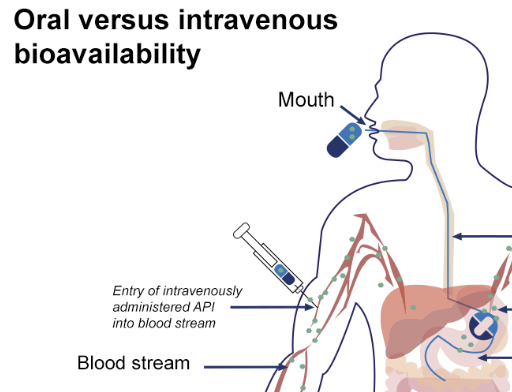Ginseng has long held a revered place in traditional medicine, especially in East Asia. Known as the “root of life” in Korea, ginseng is now being spotlighted in modern scientific research for its wide-ranging health benefits. In this article, we explore the top 10 scientifically backed health benefits of ginseng, compare Korean and American ginseng, and analyze how this powerful adaptogen affects both physical and mental fatigue. We also include real-world testimonials and insights into the long-term impact of ginseng supplementation.
1. Enhances Physical Stamina and Reduces Fatigue
Several studies confirm that ginseng improves physical endurance by reducing oxidative stress and enhancing mitochondrial function. A clinical study published in PLOS ONE (2013) found that Korean red ginseng significantly improved physical fatigue scores in athletes during prolonged exercise.
2. Boosts Immune Function
Ginseng’s ability to enhance the immune system is one of its most documented benefits. A 2012 Cochrane review highlighted that ginseng can reduce the incidence and severity of colds and flu. The polysaccharides and ginsenosides stimulate macrophages, natural killer (NK) cells, and dendritic cells.
3. Supports Cognitive Function and Memory
Ginseng is associated with improved memory, attention, and overall cognitive performance. According to a study in the Journal of Psychopharmacology (2010), participants who took Korean red ginseng showed significantly better performance in working memory and mental arithmetic tasks after just 2 weeks.
4. Regulates Blood Sugar Levels
In a randomized controlled trial published in Diabetes Care (2000), ginseng improved fasting blood glucose and postprandial glucose levels in people with type 2 diabetes. Ginsenosides have been shown to enhance insulin sensitivity and glucose uptake.
5. Improves Erectile Dysfunction
A meta-analysis in British Journal of Clinical Pharmacology (2008) reported that red ginseng was significantly more effective than placebo in improving erectile function. It is believed that ginseng enhances nitric oxide synthesis, improving blood flow to the penile region.
6. Reduces Inflammation and Oxidative Stress
Ginsenosides exert potent anti-inflammatory and antioxidant effects. In vitro studies and animal models suggest ginseng can inhibit cytokine release and reduce markers of oxidative stress such as MDA (malondialdehyde).
7. Supports Mental Well-being and Stress Management
Korean ginseng functions as an adaptogen—enhancing resilience to stress and reducing symptoms of anxiety and depression. A study published in Human Psychopharmacology (2003) observed improved calmness and reduced stress in participants taking Panax ginseng.
8. Promotes Healthy Aging and Longevity
Korean red ginseng has been associated with telomere protection, reduced cellular aging, and lower all-cause mortality rates in long-term cohort studies. One large-scale Korean study in The American Journal of Clinical Nutrition (2009) suggested that regular ginseng users had a 16% lower risk of mortality over a 10-year period.
9. Improves Cardiovascular Health
A study in Journal of Ginseng Research (2014) reported that ginsenosides can lower LDL cholesterol and increase HDL levels, while also improving vascular function through nitric oxide pathways. Korean ginseng also helps regulate blood pressure via vasodilation.
10. Supports Liver Detox and Function
Ginseng has hepatoprotective effects. According to research in Phytotherapy Research (2011), ginseng extract helped protect liver cells against alcohol-induced damage and promoted liver enzyme normalization.
Korean Ginseng vs. American Ginseng: Which Is Better?
Korean ginseng (Panax ginseng) and American ginseng (Panax quinquefolius) differ in their ginsenoside profiles. Korean ginseng contains higher levels of Rg1, Rg3, and other stimulatory compounds, making it more energizing and adaptogenic. American ginseng, on the other hand, is known for its calming and cooling effects due to a higher concentration of Re and Rb1 ginsenosides. For physical stamina, cognitive performance, and immunity, Korean ginseng tends to have stronger supporting evidence.
Mental vs. Physical Fatigue: Tailored Benefits
Physical Fatigue: Korean red ginseng enhances ATP production and muscle recovery, ideal for athletes and labor-intensive occupations.
Mental Fatigue: It supports neurotransmitter balance and cerebral blood flow, improving alertness and reducing burnout in high-stress environments.
Real User Testimonials
“I’ve been taking Korean red ginseng daily for 6 months and feel more energized during my gym sessions. I no longer crash in the afternoons.” — Michael R., Texas
“As a school teacher, ginseng has helped me stay focused and emotionally balanced even on the toughest days.” — Hana K., Seoul
Long-Term Supplementation Effects
Chronic supplementation with Korean red ginseng (3–6 months) has been associated with enhanced immune modulation, sustained energy levels, and improved stress tolerance. No major adverse effects have been reported when used in appropriate dosages (1–3g/day of red ginseng extract). However, individuals with high blood pressure or those on anticoagulants should consult with a physician.

Premium-grade Korean red ginseng, known for its health-enhancing properties
#ginseng #koreanginseng #ginsengbenefits #naturalhealth #adaptogens







